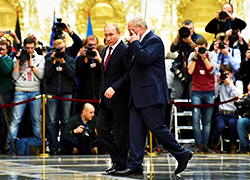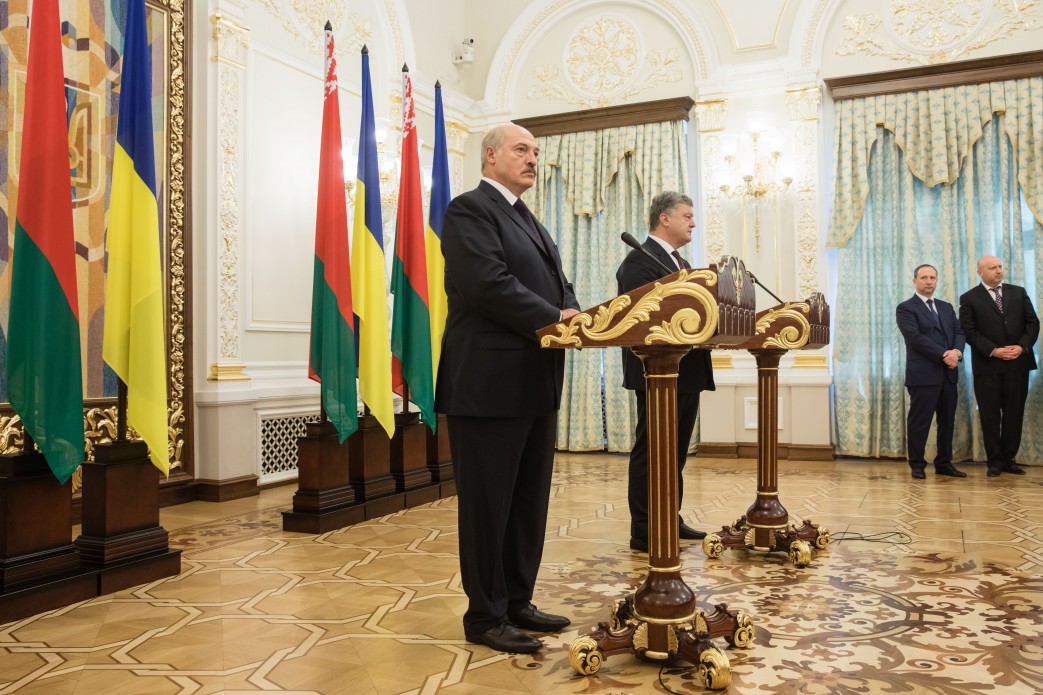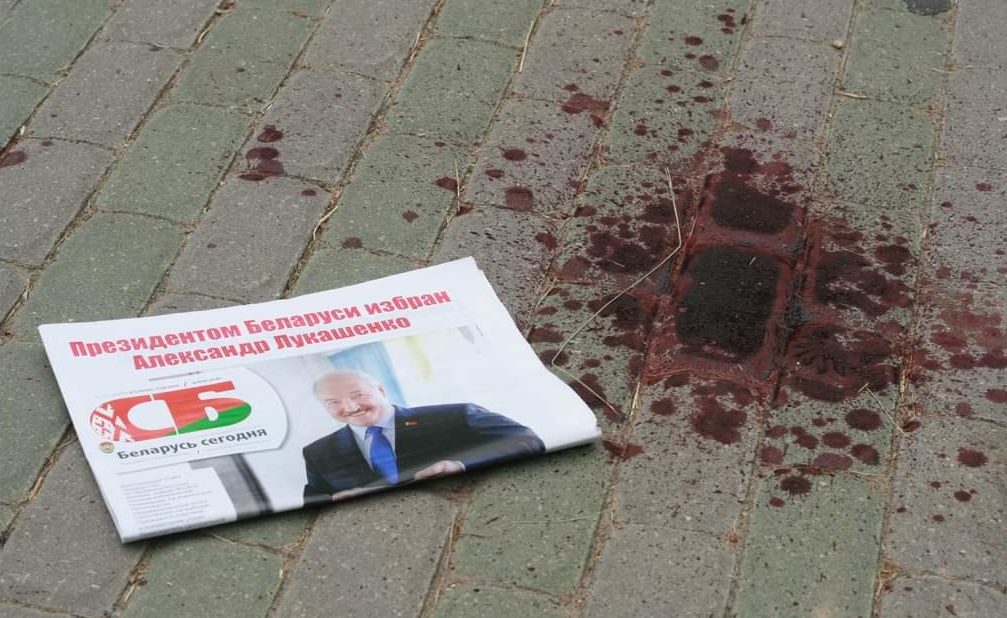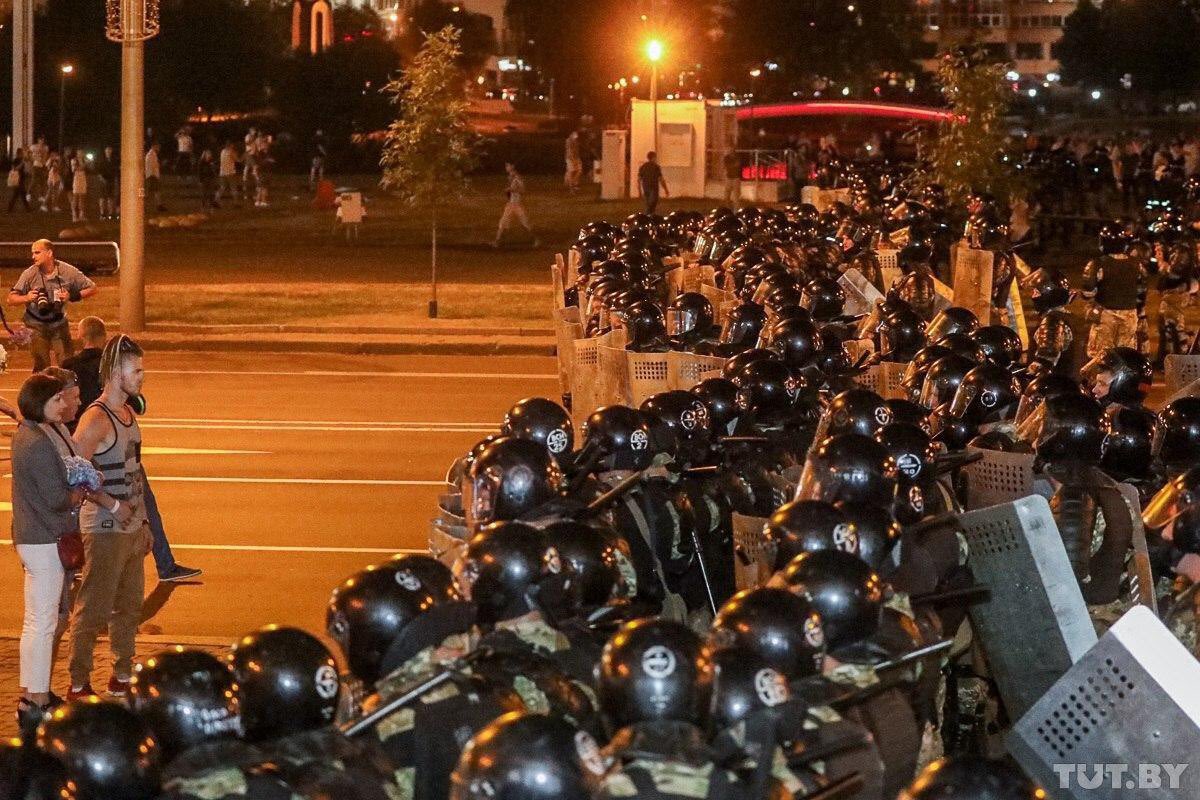Despite his success in intimidating some European governments into inaction or even willingness to come to terms with the results of his aggression, Vladimir Putin in fact is having to cope with an ever-shrinking "Russian world" as his insistence on Minsk as a venue for talks about Ukraine shows.
Indeed, had European leaders understood that the Kremlin leader could hardly tolerate talks anywhere else, they would have been in a far better position to make more demands not only of Putin concerning Ukraine but also of Alyaksandr Lukashenka, their official “host” in the Minsk talks.
In a comment for the Charter 97 portal, Iryna Khalip, a Belarusian journalist who writes regularly for Moscow’s “Novaya gazeta,” says that Putin needed his meeting with the German chancellor and the French president to be in Minsk “and not in any other place in the world” for three reasons.
First of all, she says, Putin chose Belarus because it is one of the few places outside of Russia where he feels himself to be “the master.” That is not the case in Kazakhstan, and the Kremlin leader isn’t inclined to travel beyond the borders of his Eurasian Economic Community whose rulers defer to him most of the time.
Second, Belarus was about the only place where the Donbas separatists “could feel themselves safe” and where they would “not only not be arrested but would be able to sit at one table with the adults.” That gave them the status Putin wanted them to have, and just their being at the same talks was “sufficient” for his purposes.
And third, “by insisting on Minsk as the site of the meeting, Vladimir Putin reduced to nil all the declarations of the leaders of the EU countries made after the mass arrests” in Belarus in December 2010. At that time, they said that any high level contacts between the EU and Belarus were impossible.
Despite those declarations, Angela Merkel and Francois Hollande came to Minsk, where they were hosted by the author of those arrests, Alyaksandr Lukashenka, and said nothing about the freezing of former presidential candidate Nikolay Statkevich or anyone else. He remains in prison. Had the Europeans insisted, Putin would have convinced Lukashenka to release him.
Khalip then addresses the larger problems of this venue as a summit. Summit meetings, she points out, are not occasions for negotiations but rather “the last stage” in such a process. But Merkel and Hollande acted otherwise and that gave Putin the opportunity to “wrap them around his little finger” and get what he wanted out of the session without yielding anything in return.
“The difference between Merkel and Hollande, on the one hand, and Putin and Lukashenka on the other is that the latter two not once for many years has kept his word,” Khalip writes. The Europeans are accustomed to the idea that promises will be kept, while Putin and Lukashenka assume that promises are made for anything but that.
And the Europeans, or at least Merkel and Hollande, suffer from another problem as well: they can’t afford to take part in a meeting after which they would have to say to their electors at home: “forgive us, we weren’t able” to reach an agreement. That means they need to know going into a meeting what will be agreed to or they will be manipulated.
This need also means that the Europeans do not always understand what the meeting is about or what the other side wants. Putin knew what he wanted at Minsk and it was not about the Donbas. He had much bigger goals in mind, including the end of sanctions, an end to his isolation, and a reaffirmation of his role in Belarus.
“Europe in these negotiations thus demonstrated all its weaknesses,” Khalip says, including its “complete inability to defend itself, its lack of a strategy toward the Russia of today, its indifference to the territories of others,” and its willingness to pay off bandits like Putin and Lukashenka in order to continue to live quietly until they make new threats and new demands.





